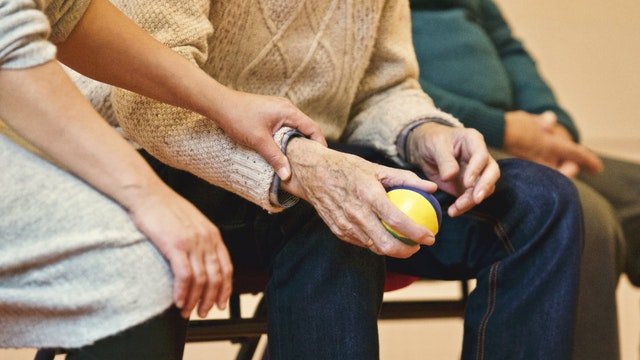
In a new study, researchers from York University’s find that just 30 minutes of visually-guided movements per week can slow and even reverse the progress of dementia.
They found that people in the early stages of dementia who were exposed to 30 minutes a week to a game for visually-guided movements, were able to slow down the progress of dementia and for some, even reverse their cognitive function to healthy status.
This study is the first to investigate the impact of combining both types of approaches on cognitive function in elderly people with various degrees of cognitive defects.
Previous studies have used cognitive training alone or aerobic exercise training alone.
In the study, a total of 37 elderly people located at senior centers, were divided into four groups based on their level of cognition.
They completed a 16-week cognitive-motor training program that consisted of training sessions involving playing a video-game.
The game required goal-directed hand movements on a computer tablet for 30 minutes a week.
Before and after the training program, all participants completed a series of tests to establish their level of cognition and visuomotor skills.
The team performed tests to evaluate cognitive function 14 days prior to and after the intervention period, respectively.
They found an overall change in all groups and, specifically, a significant improvement in measures of overall cognition in the sub average cognition group and the mild-to-moderate cognitive deficits group.
They further found that those in the severe cognitive deficits group who did 30 minutes of this eye-hand task did not decline in their cognitive deficits as expected, but instead stayed the same.
The team suggests that repetitive cognitive-motor integration training may in fact strengthen the involved neural networks and improve cognitive and functional abilities.
They believe the frontal lobe is ‘talking’ to the motor control areas and this is what is paving the way for success.
Their findings show promise for those who have early-stage dementia because the approach is easy to administer remotely and shows more promise than the basic cognitive training.
The lead researcher is Lauren Sergio, professor in the School of Kinesiology and Health Science and Centre for Vision Research at York University.
The study is published in Dementia and Geriatric Disorders.
Copyright © 2018 Knowridge Science Report. All rights reserved.
Follow Knowridge Science Report on Facebook and Twitter.
Figure legend: This Knowridge.com image is for illustrative purposes only.
Journal reference: Casper de Boer et al, Thinking-While-Moving Exercises May Improve Cognition in Elderly with Mild Cognitive Deficits: A Proof-of-Principle Study, Dementia and Geriatric Cognitive Disorders Extra (2018). DOI: 10.1159/000490173



